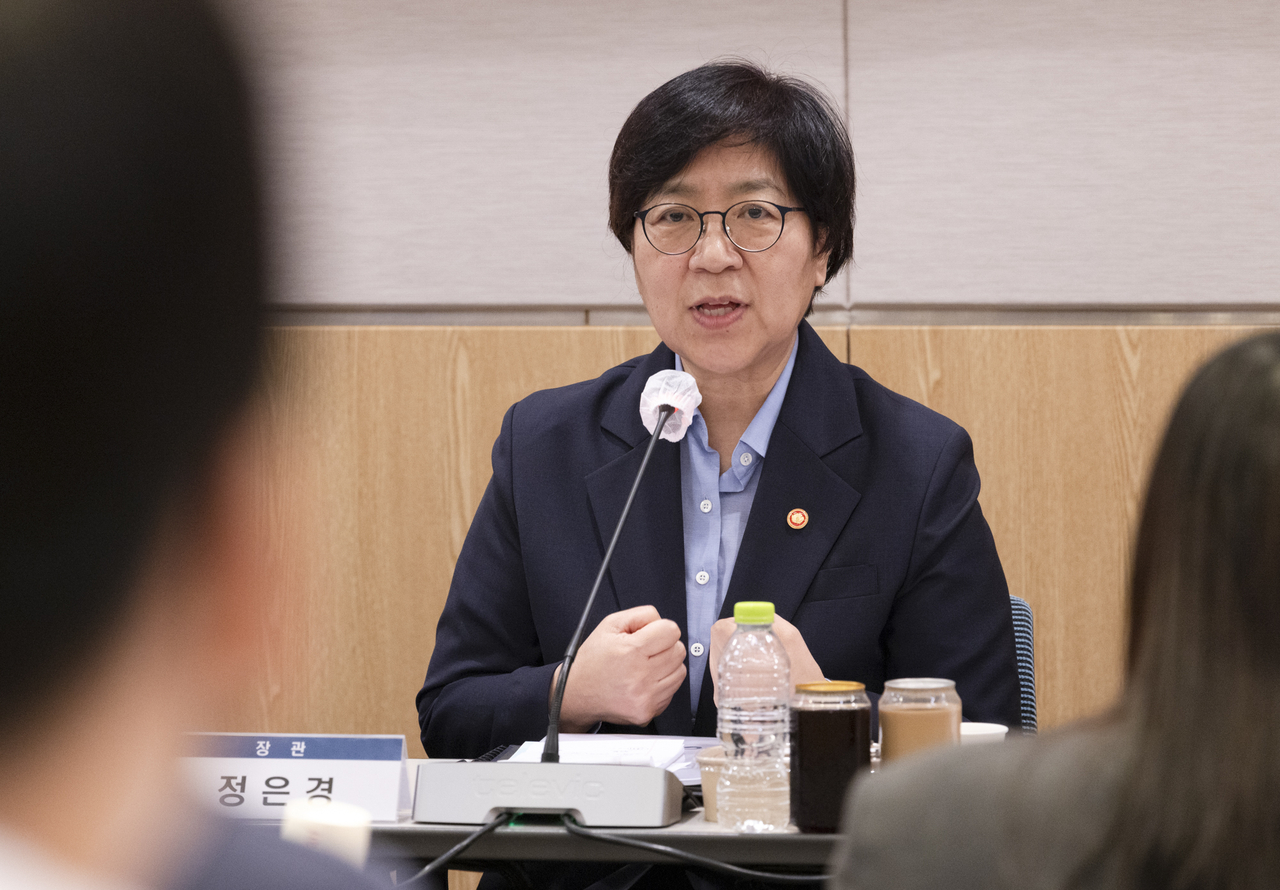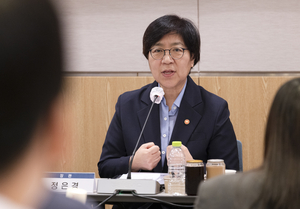Plans include hospital oversight reform, regional doctor training, W1tr for research
 Welfare Minister Jeong Eun-kyeong speaks to reporters during a policy briefing at the FKI tower at Yeouido on Monday. (Yonhap)
Welfare Minister Jeong Eun-kyeong speaks to reporters during a policy briefing at the FKI tower at Yeouido on Monday. (Yonhap)
The Lee Jae Myung administration aims to overhaul South Korea’s public health care and social security systems, with a blueprint for sweeping reforms that include transferring the management of national university hospitals, creating a public medical academy and expanding investment in biotechnology and medical research.
In a policy briefing Monday, Health and Welfare Minister Jeong Eun-kyung said the government aimed to complete its plan to transfer oversight of national university hospitals to the Health Ministry by the end of the year. Their management is currently under the Education Ministry
Jeong explained that the move would allow greater flexibility in staffing, wages and clinical operations, and help develop them into regional hubs capable of treating critically ill patients.
“We have long planned to strengthen clinical capacity and regional networks by transferring national university hospitals to the Welfare Ministry,” she said, adding that the National Assembly’s Education Committee was reviewing the necessary legislation.
The government also plans to establish a public medical academy to train doctors dedicated to essential and regional care. Jeong said the legal basis for the school will be prepared within the year, although setting up the institution itself could take three to five years, depending on legislative progress.
In parallel, the administration is pushing for a “regional doctor system” that would allocate a quota of medical school seats to students who agree to work about 10 years in underserved areas after obtaining their licenses.
These are similar to plans introduced in 2020, which the Moon Jae-in administration abandoned in the face of protests from doctors.
The Korean Medical Association has warned that the scheme may violate constitutional rights to choose a profession and residence. However, Jeong argued that legal reviews indicate little risk if applicants voluntarily accept the obligation when entering medical school.
Meanwhile, regarding the ongoing furlough of doctors who protest against the government’s plan to expand the medical school quota by 2,000 students, Jeong said the government audit was still underway regarding the previous administration’s plan. She added that the Board of Audit and Inspection will announce the results once the review is completed.
Beyond health care delivery, the ministry plans to inject more than 1 trillion won ($717 million) next year into research and development in biohealth, medical AI and pharmaceuticals — a first for the annual budget.
The funds will support full-cycle projects from basic research to commercialization, including a specialized fund for Phase 3 clinical trials and advanced regenerative medicine.
These plans are part of five core policy goals and 11 national tasks aimed at building a sustainable health care system. The ministry will release detailed directions next month after a public medical innovation committee gathers social consensus.
Jeong stressed that the reforms will focus on reducing regional disparities, securing essential medical services and strengthening public health infrastructure.
“Our goal is to create a sustainable health care system for Korea,” she said.
jychoi@heraldcorp.com

